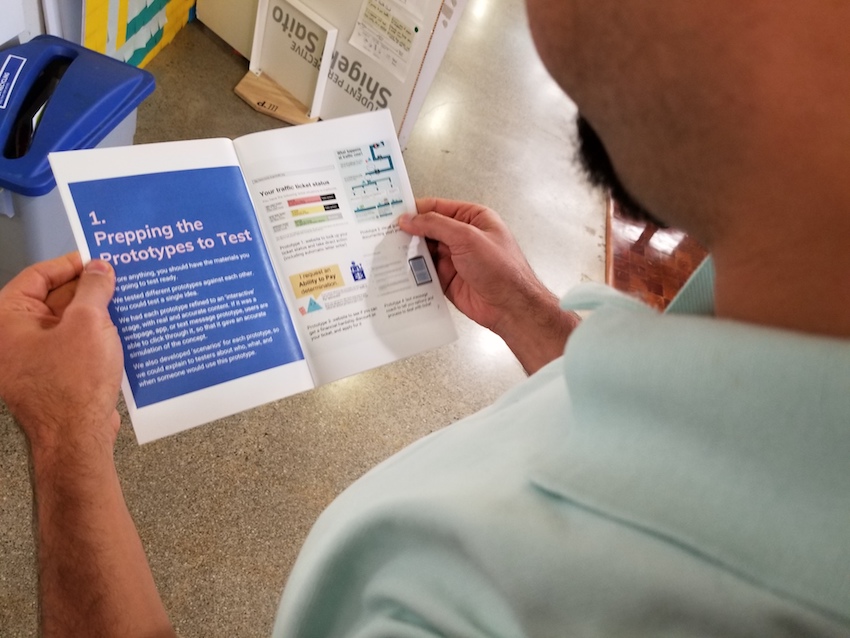Our Lab has produced short books that can guide legal help practitioners through key steps of making more accessible, empowering, human-centered legal services. These field guides offer guidance, principles, and resources to do good justice innovation work. Please feel free to use and share!
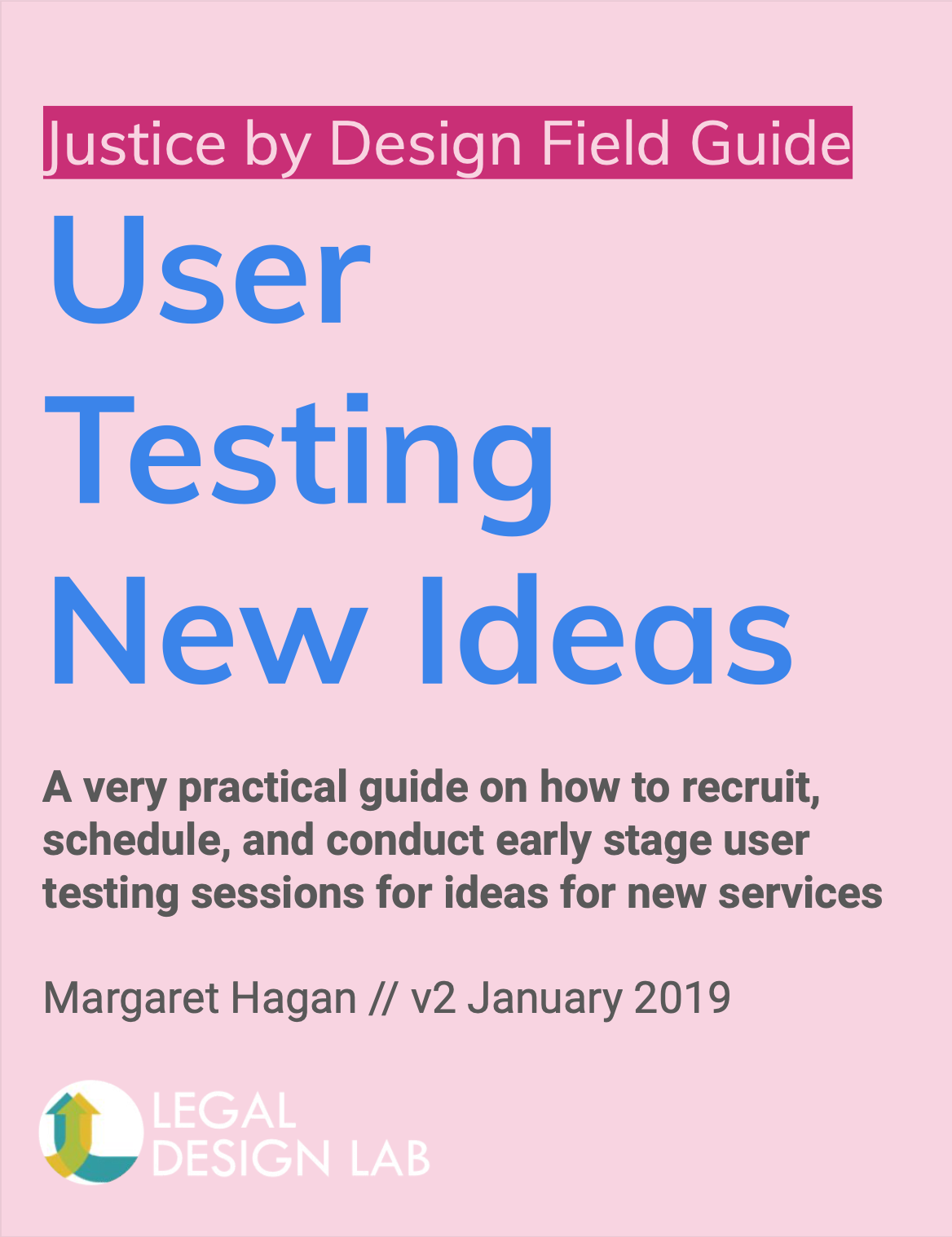
Use this user testing field guide to get feedback on new ideas for technology, services, or policies in your part of the justice system.
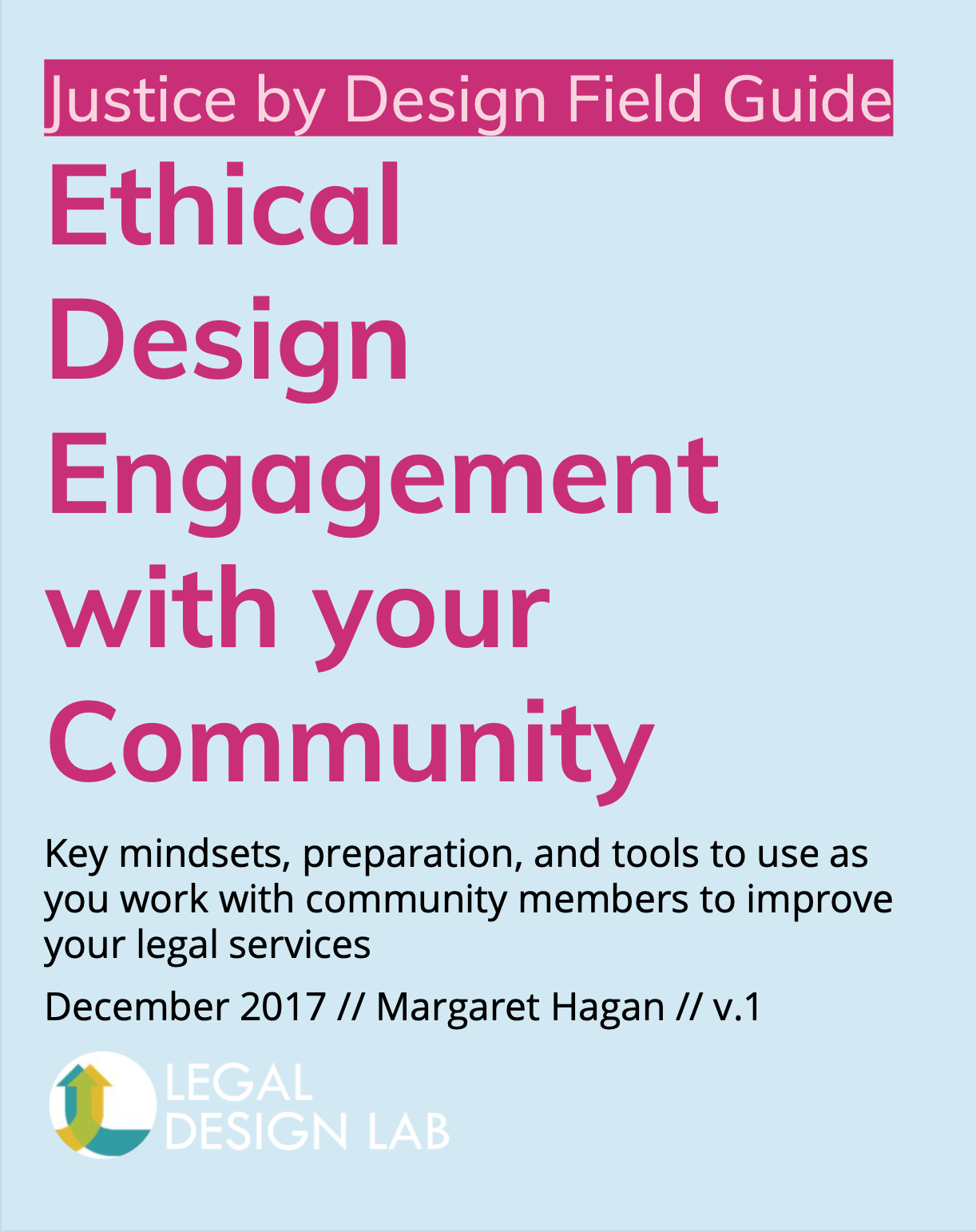
This ethical design field guide will lead you through key principles and steps to take when doing design work with community members, including people who are vulnerable or at risk.
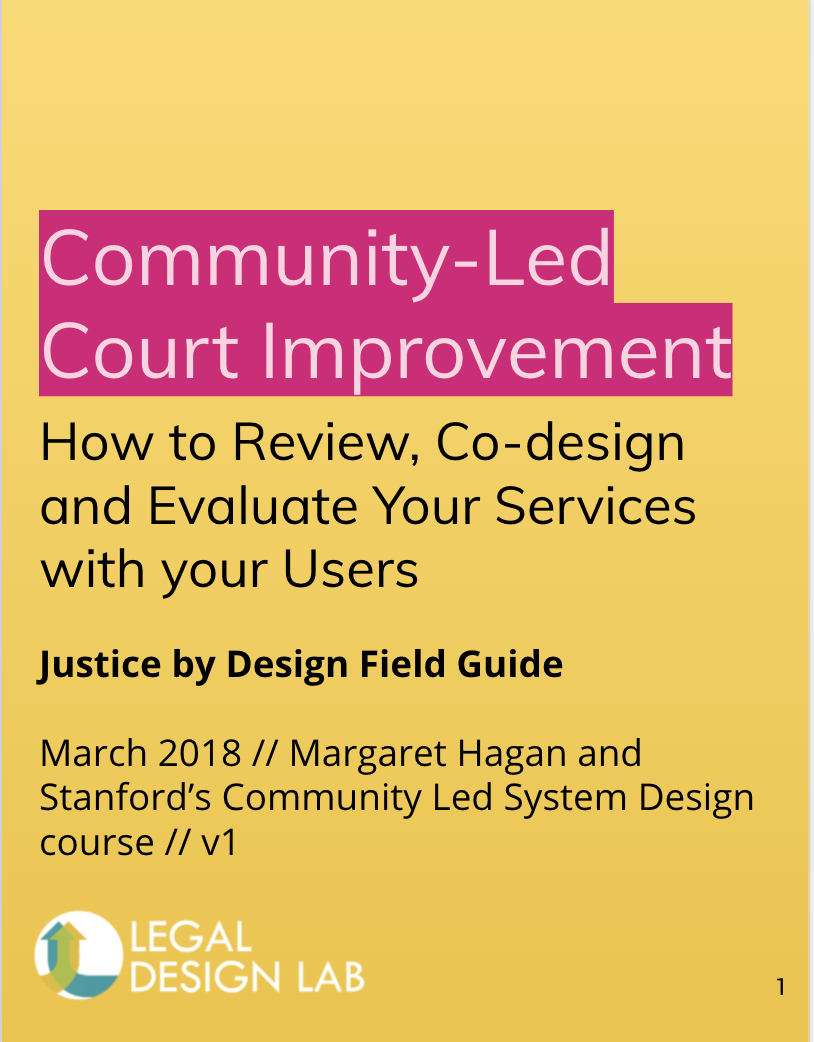
This field guide on Community-Led Design can be used by court leaders to engage their court users in new ways, to get their input on new ideas and reform of the justice system.
Other Groups’ Guides that We Recommend
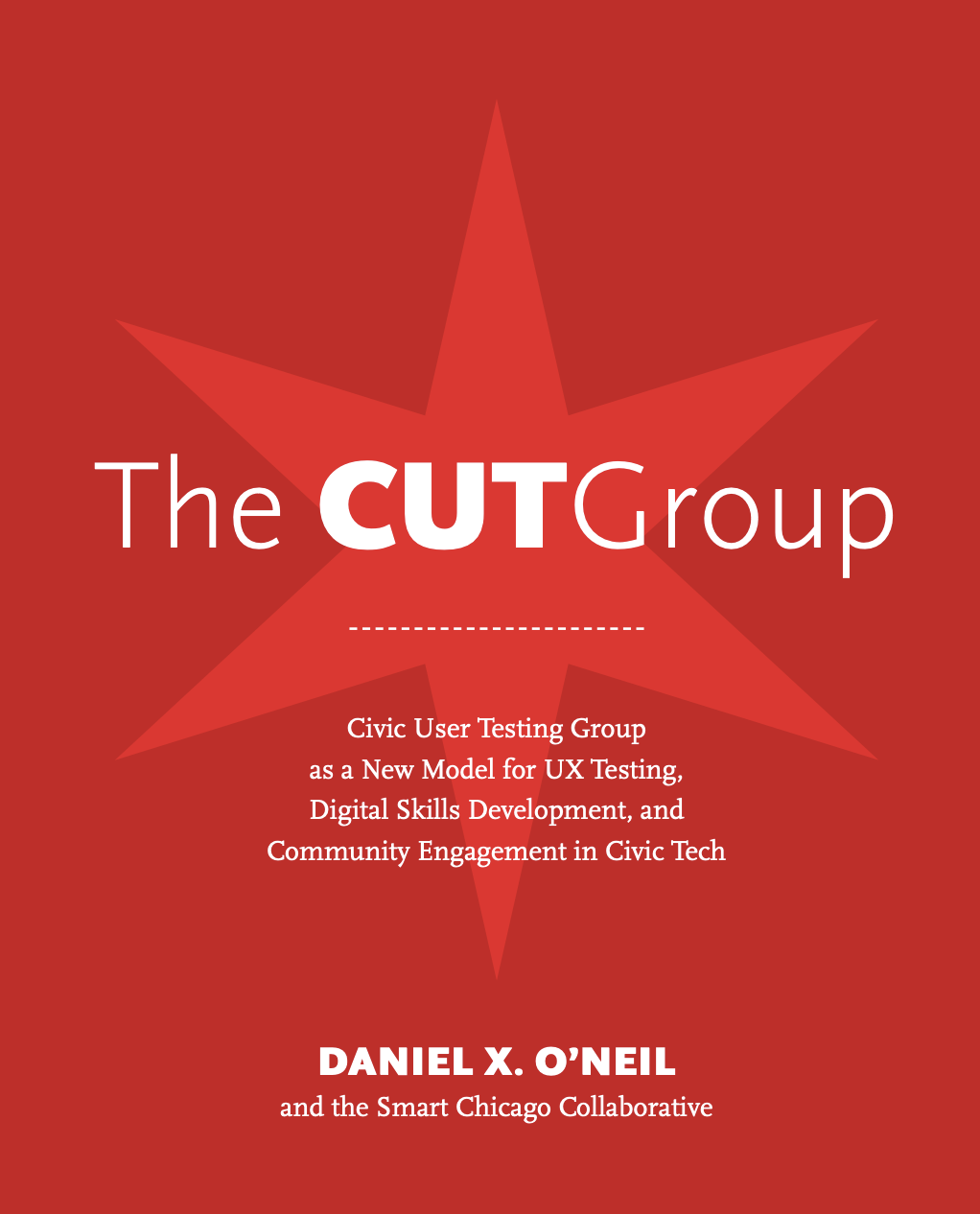
The Civic User Testing Group guide is a practical step-by-step on how to run public interest technology testing sessions in libraries, courts, and other public places.
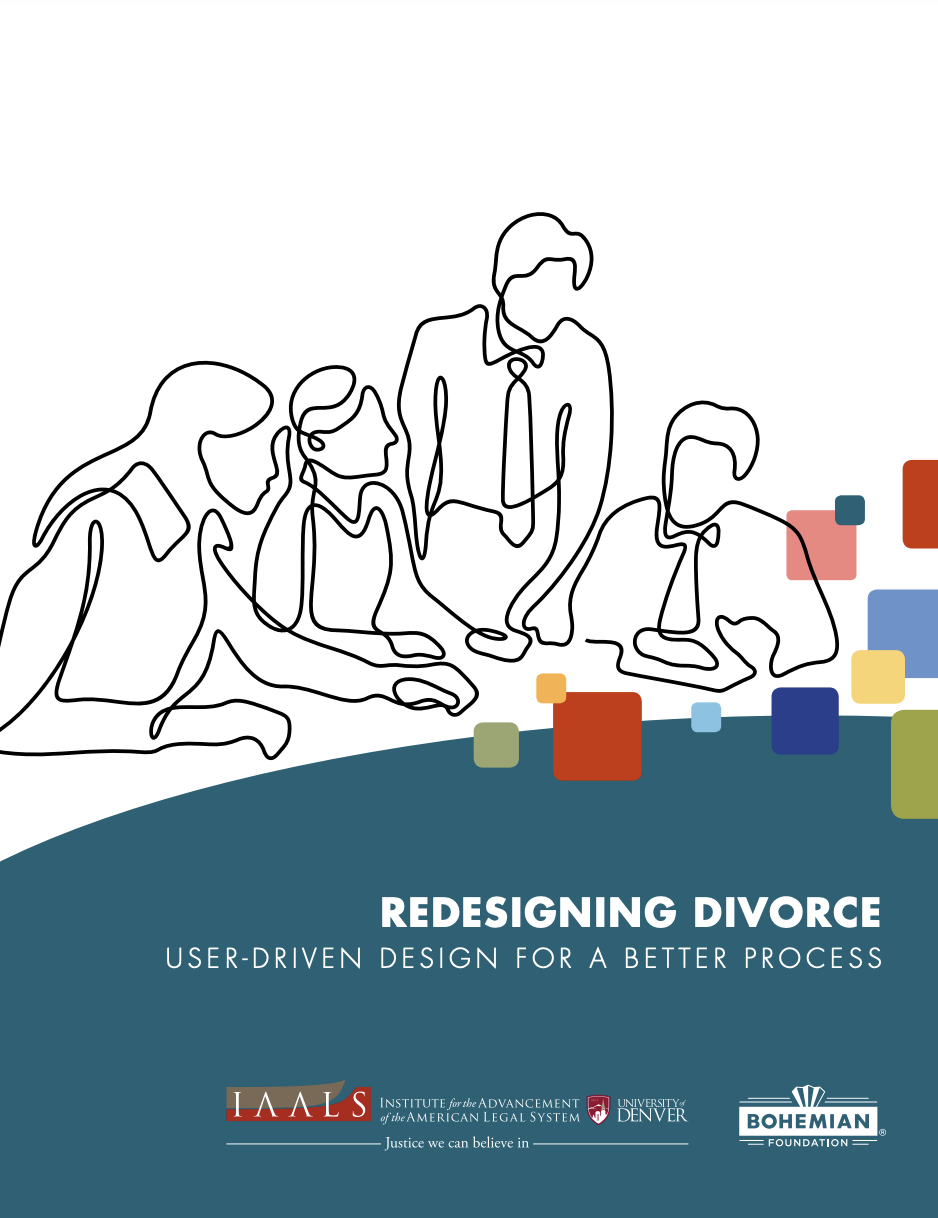
IAALS has a field guide to using User-Driven Design to improve the divorce (or other justice) process with human-centered and co-design techniques.
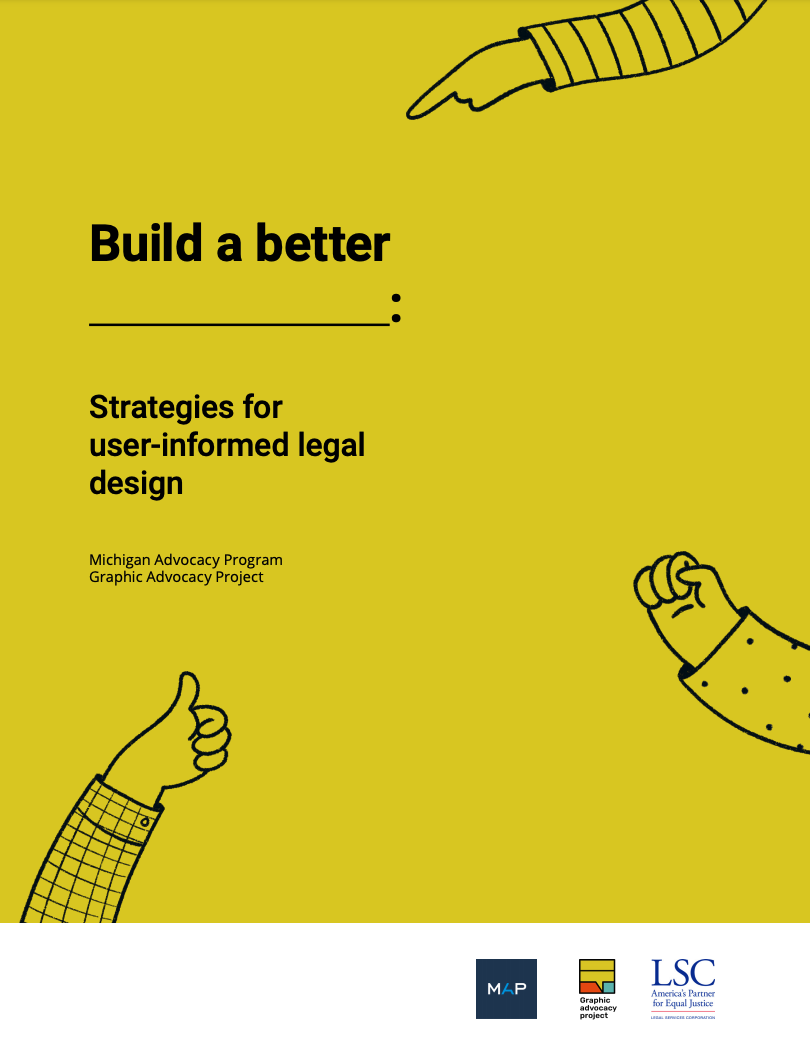
The Michigan Advocacy Program & the Graphic Advocacy Project have a Build a Better _____ field guide for user-informed design.
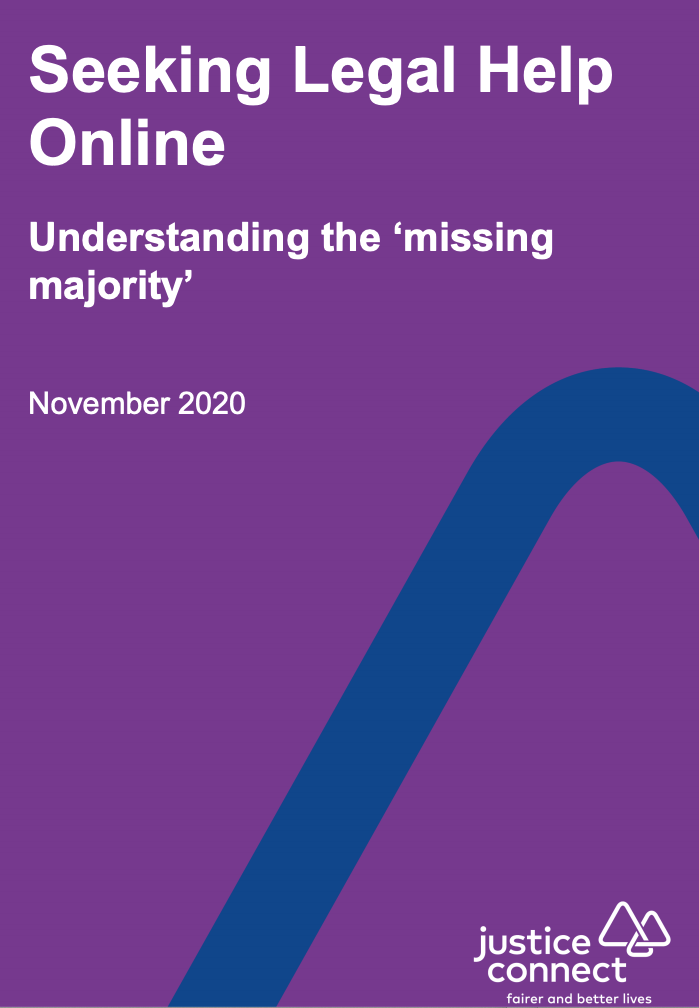
The Australian group Justice Connect has a report and methodologies on legal technology and design, called Seeking Legal Help Online. It includes examples of how to do user analysis, research design, journey mapping, and user requirements.
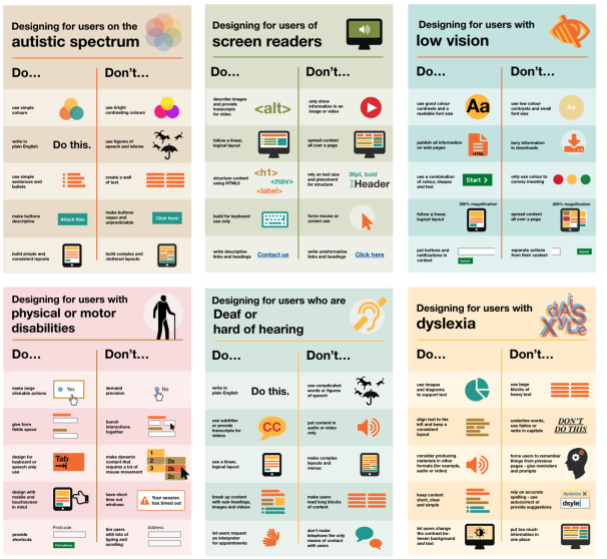
GOV.UK, the digital service in the United Kingdom government, has an extensive Accessibility website to help you create online and visual resources that work for people with different learning styles, cognitive approaches, physical limitations, and other needs.
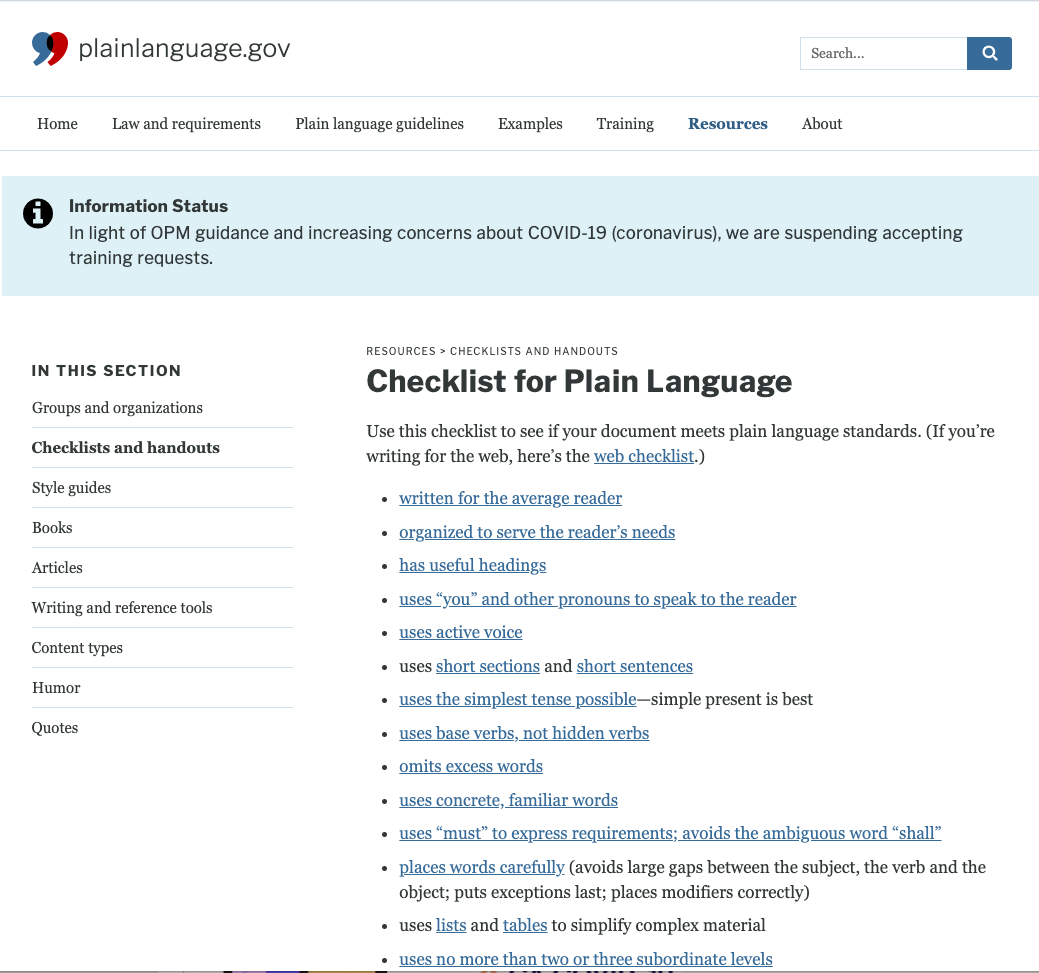
The US federal government has Plain Langauge guides, checklists, and training at PlainLanguage.gov to help you learn how to write complex things in user-friendly ways.
